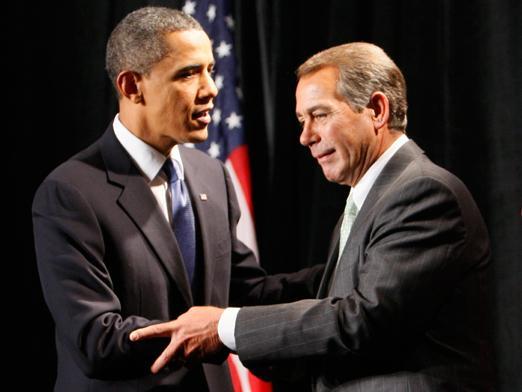The US Government narrowly avoided its first ever default in history last week as the Senate passed a bill to raise the debt ceiling until early next year.
The American fiscal year ended on the September 30th, by which time an agreement on the budget for 2013/2014 was expected to have been agreed upon. Despite extensive negotiations, the US Government failed to agree a budget, which led to what is known as a partial government shutdown. The immediate effect of this was that over 700,000 of the 2.1 million federal workers in the US were put on unpaid leave. Departments which suffered included the White House, Pentagon and other federally run areas, such as national parks and war memorials.
Emergency provisions were made however, with President Obama signing in emergency legislation to finance the military and other essential functions of government, such as social security and Medicare payments. All non-essential departments or employees were however furloughed until September 16th, when a budget extension was overwhelmingly agreed upon by the Senate.
The short term financial consequences of the shutdown were not overly dramatic, but not totally unnoticeable either. It was estimated by ratings firm Standard and Poor, that over $24 Billion was taken out of the US economy by the shutdown. With over 700,000 people on unpaid leave, many were left unable to make essential payments for mortgages and bills which of course put pressure on the entire US economy.
In political terms, the Republican Party are the main casualties of the stand-off. According to  a CNN/ORC poll conducted between the September 18th and 20th, the number of people who thought the Republican party was too extreme ,went up to 52%, an 8% increase from March. Furthermore, polls showed that 6 in 10 people thought the Tea Party was too extreme, with a total of 52% saying the Republicans were responsible for the shutdown.
On the other hand, President Obama, who has been criticised recently for his lack of leadership, stood his ground and refused to give in to the terms. Not only does this mean that for now Obamacare will be funded, but also that he hasnÔÇÖt set a precedent for allowing the economy to be held hostage whenever undesirable legislation is passed.
The damage the shutdown did to the DemocratsÔÇÖ reputation appears to be minimal. When asked who they would vote for in their district, 52% of registered voters said they would vote Democrat as opposed to a mere 43% for Republican. This will bode well for Obama, who may at some point this month have wondered whether this shutdown would signal the end of democratic rule.
The main furore however, is to be had in the Republican camp. Having emerged from a $24 Billion stalemate with nothing but negative polling and a broken party, the GOP look in no shape to challenge the next election in 2016. With finger pointing now being initiated, the Tea Party being accused of extremism, and the general destruction of the RepublicansÔÇÖ┬á reputation, one might think that the immediate challenge for John Boehner, the Speaker of the House of Representatives, is to seriously regroup his party.
It is a testament to the disarray in which US politics finds itself that a deal to reopen Government and extend the debt ceiling until shortly after January of next year is called a breakthrough. With an eye to the 2016 elections, the Democratic party will be feeling confident as John Boehner and the rest of the Republicans will now have to fight hard to recall moderate and independent voters to their support while simultaneously fighting a bitter and fractious internal policy battle.
Gareth Short





Add Comment